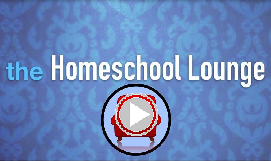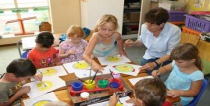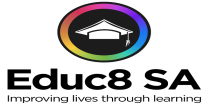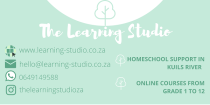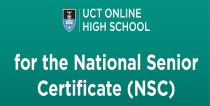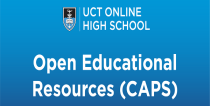Meetings between homeschoolers & government
Interview of Joy Leavesley with Lynn Coleridge (Director Policy co-ordination WCED)
2pm Tuesday 27th May 2014-05-28
J: Lynn thanks for allowing me to phone you today and I just want to confirm that you know that I am recording the conversation. Your secretary checked that out with me.
L: Yes I just want to confirm which platforms you are going to use the conversation. You know what I mean?
J: I am going to be loading it up to my blog which is where I am putting information to do with the constitution, the schools act, national policy around home education, facts and figures on international education and the direction organisations like UNESCO are taking in international education. Really, as a way for there to be somewhere for people to go, who are very confused about what the state of things to do with home education within South Africa is.
L: OK if you are going to use it on your blog I would prefer you to send me the questions and then I can respond to you on every aspect and then you can post that up on your blog because I do not know the questions you are going to ask and if I will be able to give you all the information you require.
J: That’s fine. If there is something you don’t know I am happy for you to say sorry I don’t know that, I can get back to you in writing. I can write down the questions you need to consult with your colleagues on. I certainly don’t expect that you will know everything. It is complicated. That is one of the reasons for the blog as home education within South Africa is not a straight forward affair which I am sure you appreciate. As an advocate you understand it is a multi layered situation, on the one hand you have a child’s right to education on the other hand a parents right to choose how to raise their children, you have the constitution, the schools act, the national policy and various media publications, for example, I know, in the Western Cape, a month or two ago you advertised what a parent wanting to home educate their children should do. I don’t know what the legal standing of that was because as I understand there is not policy or regulation within the Western Cape at this stage. There was a draft policy which came out earlier in the year that was withdrawn.
L: There is still obviously the national policy which is still in place.
J: Maybe the publication was in relation to that, I am not sure. You can see from the way I am talking, there is no clarity and a lot of confusion amongst the parents equally amongst the education staff and seemingly even people within departments are unclear on what to do and how to do it and so forth.
L: I can’t comment on your experience. In the email to me you said that you have spoken to Donald Grant and Penny Vinjevold.
J: Yes and now also to Timothy Ndzudo. Basically the question that I have more for from the discussions I had with them. There seems to be confusion around how much the provinces are allowed to do that which they choose to do. I put it to Timothy that we effectively, in the WC, home education policy can more or less, within the limits of the constitution, be whatever we choose it to be. That is the whole point of concurrent powers. That is the whole point of having a province in place. There are rulings to say that is so. And yet when I speak to people in the Western Cape no-one wants to say we are free to draft our own policy.
L: Yes obviously we are free to draft our own policies and that is what we were embarking on a few months ago. I guess that is where some of the confusion came about because we sent the draft policy to a few home education stakeholders for their input and I think they were under the misinterpretation that we had sent it for public comment but it had not gone that far yet, it was still in draft stage. We were just getting comments from the stakeholders because you are so intrinsically involved in it before we go ahead to publish it for public comment. Not as a final promulgation. That was the intention from this directorate to just get comments from home education to see whether they aligned and whether they have any comment or amendments or anything to add. It was nothing done in bad faith I can assure you of that. None of the other stakeholders had seen it. There was quite a bit of an uproar about it and though we had said come on board and let’s get the conversation going I think probably went horribly wrong when people misunderstood the intention that it was just a draft and discussion paper. So that was quite interesting, from my side, that it panned out in that direction.
J: I am sure that if it was just the ordinary public you would not have had such a reaction. This for home educating families is what we do, it is our lifestyle, the passion people feel for it is extremely high even compared to parents whose children attend a traditional school. While home educating families are only 1%, they are the 1% that have given up their own careers and made other sacrifices, they are unlikely to be the ones that sit back and say “ yes it’s fine, sure, no problem. Unfortunately they are the 1% who are likely to get quite worked up.
L: Yes that is my experience. I have never done any drafting for home education, to be honest with you, I have been doing a lot of legislation and this is the first time our directorate was meeting or feeling the home education field. It was quite interesting and unexpected. But I am sure in future if we are on the same page and we can see there is no bad intention and no mala fides I am sure we can get a document that all stakeholders can be a part of.
J: That is the backdrop for my blog. I have tried to get information and I have tried not to make it political and tried to be as unbiased as possible to just present information and then people can consume that information as they see fit. I understand the difficulties that while children have rights and parents have rights the children need to have some guardian which is obviously their parents, but there is involvement of some degree of the state within that. So it just works out that we happen to have some relationship automatically between the state and the parents of the children. It is just how things are. It is where the line gets drawn on that becomes the very very difficult thing because home educating parents feel that the state does not tell me how I should raise my child in terms of religion, they don’t say you must only go to such and such church or synagogue and you must only do this an must only do that and you must report back to us. They don’t do that with health, saying your child must go to a GPO twice a year and must only this and that and so the thought in home education is if I have such freedom in every aspect of my child’s life why is education different? Including the other basic rights, shelter and health care and so on what makes education different.
L: The legislation was published back in 1996 it is coming on a long time for home education. The schools ct says in section 51 Registration of learner for education at home.—(1) A parent may apply to the Head of Department for the registration of a learner to receive education at the learner’s home. (2) The Head of Department must register a learner as contemplated in subsection (1) if he or she is satisfied that (a) the registration is in the interests of the learner; (b) the education likely to be received by the learner at home (i) will meet the minimum requirements of the curriculum at public schools; and (ii)will be of a standard not inferior to the standard of education provided at public schools; and (c)the parent will comply with any other reasonable conditions set by the Head of Department.
That has been the law since 1996. Then when I look at the government gazette on the policy for registration for home education, that was published in 1999, that sets out the procedural aspects of registration. So, as we stand now, there is nothing new yet on the table besides filling the gaps. That was the intention of the draft policy. Where there are the gaps in the law and that is where the province comes in concurrent ability to legislate. That is the position with the policy to try and fill those gaps and when I speak of gaps I am talking about the assessment of the learner at home for example who can assess the leaner and also what happens to learners between grades 10 and 12. They were grey areas. The only things our policy was trying to achieve was to say these are the gaps in the national law and this is how we can address those gaps. In terms of the intention of the legislation for the home education, you obviously have parents who can educate their children very well and then you have other instances where parents take their children out of school for various other reasons but are also not equipped to educate their learners at home. So it is very very difficult to have a blanket situation where we say yes all parents are on the same level to actually educate learners at home. So there is the law to protect those learners. It is not really those parents who are equipped and able and have the necessary resources to educate their children. So it is important, as the state, to protect those learners, though you can’t protect everyone, that you have the best case scenario. Therefore you have the need to protect the interest of the learner not focused so much on the parent. Yes we have equipped (and the state knows that) we have ill equipped parents that don’t have the necessary resources to teach their children and various other factors which is not in the best interest of the child. So it is balancing act it is difficult.
J: It is difficult. And especially because in South Africa one is not guaranteed of getting a teacher that is fit for purpose either. So there is lots of research to show that there are teachers who below minimum requirements. So it is then very difficult to have two sets of standards. Where at school we have teachers that are not qualified and in fact where pupils know more than the teacher and yet at home that is definitely never allowed. We have to be careful that what we expect of parents is what we expect of the state. So while it would be easy, as we are a small number, to have the names and to visit and to remove children and to whatever where you feel education is not up to standard. What do we do with the 1 million children who are not being taught by qualified teachers? Do they need to be taken away somewhere?
L: That is getting into different dynamics of teacher development.
J: I am just saying you have to be fair.
L: There are various factors on all levels. There is no silver bullet.
J: We are not alone there are many countries with education policy front and central. It is a big international headache. There are very few countries which seem to have cracked it and South Africa is on the bottom of all the lists. I do take on board what you are saying. You want to be sure that the children are getting the best they can and that is what our constitution demands. It is therefore very puzzling for me why parents whose children are at government schools don’t sue the government for dereliction of duty. Because how can it be that someone can spend 12 years at school and be hardly literate and numerate? I can’t see how that is fulfilling the child’s right to an education in terms of personality, talents, mental and physical development which we are obliged to uphold under the human rights legislation.
L: We have all the remedies available to us in law that is why we have the constitution, that is the reality of the situation.
J: That is why I want to go back to the school act because I do not feel it is constitutional. I just want to put that out in front before we start with it. Because you don’t have to register your child for any other right. So for example, the right to health I am passionate about because my background is in health, a child could die so we aren’t talking about can you add 1 and 1 the child could be dead. The stakes are very high, even more so than education, well at least in the short term, and yet we don’t register our children for healthcare we don’t have standards we have to meet there is no oversight of health in anyway. There is policy for example immunisations and public health issues. You can’t force those policies on my children. You can’t force my children to immunised and if you did it would be an assault and you would be criminally charged. So even though it is potentially in the best interest of the child the parent can still supersede that. So even for example when the health authorities make school visits (which I think is twice in their school career) when they weight the children and give them immunisation and health education even that a parent can say sorry I don’t give my consent and a child will be excluded. So even in healthcare where the stakes are so high and yet when I come to education I see it is so regulated. I understand education is also high stakes and I am a massive supporter of education, clearly as I have decided to take it in for my own children, so of course I see the value of that being unbelievable. Yet why is it not the assumption that I am doing the best for my children, you know the innocent before proven guilty where as with home education I am guilty until I can prove I am innocent.
L; If you take the schools act and you take it back to compulsory school going age and if you take that theory there as well then we have to shoot that down too.
J: Well yes we do.
L: By virtue of international standards we have to say children between the ages of 7 and 15 must attend school. Which is in the law as well, and therefore with home schooling, the law says you can home school your children but just apply from age 7 to 15 or grade 9, whichever comes first, that that child is receiving an education.
J: But now you have just said something very interesting, you have made the assumption that school provides an education. Which we have already said it doesn’t, we have children spending 12 years at school and yet are functionally illiterate, so school and education are not necessarily transferable terms. That is an important one because my objection to the schools act is that the constituent requires my children to receive and education. Also if you look at the international law that we have signed regarding that you see education defined as something along the lines of the child being able t fulfil their fullest potential in personality talents mental and physical abilities OK so that is quite a broad definition and to me that is raising children not even education that is just what you do when you raise children. So that is education not schooling, So in the Schools Act I understand that it is about schooling and yes I understand there is compulsory school ages and yes I understand that it is the avenue most people would like education to be provided through I get that but what I am saying it that they are not transferable terms, because what is also true is I have not started educating my children from when they were 7, I have been educating them from when they were born, and I am not likely to finish when they turn 15, I am likely to carry on until they say thanks mom we are charge now, be that 15 or 50 I don’t care. So then school becomes a very artificial scenario when it comes to education, you are learning all the time, it is just how life is, and so to me that is why I have a problem with the schools act. So it is on two fronts why education is more regulated than any other right and does school provide an education? Does implementing the schools act guarantee every child with an education and I think the answer to that second question is no. The first question about why it is so regulated I understand your concerns about people not being equipped but then Lynn we would end up in a scenario where we say because you can’t provide a lovely house for your children to live in we are going to criminally charge you for not providing suitable shelter. The schools act makes me not registering my children a criminal offence I can either be fined or go to prison.
L: Correct if you do not send your child to school and they are of compulsory school going age that is the only criteria there it is not a blanket criterion in the schools act.
J: Well it is in the sense that if you don’t send your kids to school and you don’t have permission from some authority somewhere you are a criminal.
L: Well you know in our society it is such a difficult situation. If we say we will do away with compulsory school going age millions of learners who come out of sub economic conditions who face poverty. If we were all equal then I could say let’s do away with compulsory school going age and let’s just do away with the fact that you could go to public or private or homeschool. As a state we have to protect those people that really if we don’t act in their best interest we don’t know how society will pan out in the end and you want to create a society that is educated and literate. Especially with our society, with our past, learners still have a lot of catching up and all schools are not equal and still have all those factors and if the state says we are going to do away with compulsory school going age we are not telling parents learners must be at school what will happen to us as a society? So there are broader issues that we have to come to terms with yes as a society we have to make the right choices for our country it is not just about me and my minute family. Saying how is our country and how is our democracy going to grow and how are our children going to achieve and become part of the global world. If we don’t we do it as a state we will be failing the country. As I said there is not a silver bullet. Its the reality of any capitalist society it is a reality that you have schools that have wealthy parents who send their children to private schools and the quality is better because the teachers get paid more and the parents expect more because they are paying for it and then we have a no fee school as well. Then how do parents address a no fee school. It is a whole lot of inequalities that plays out in our society which is out there.
J: I can tell you that all the home educators I know are heart broken by seeing the state of education. Especially as we are at the coalface of teaching our own children and so can see how easy it is to educate children and so how it need not be complicated and yet still somehow there are other factors at play that do allow it to succeed. I am sure there are many home educators that would agree that we are saddened and aggrieved by the state of education in South Africa and there are a lot of us who are providing tutorial support to government school children in order to try and help them get through because we feel so passionately about education and it is something no one will be able to take away from our children. Once they are able to read no matter where they go they take that with them so it is better than just handing out money or clothes and you have given them an opportunity which they may or may not use., that is the caveat with education you don’t need to use your education, I know some pretty well educated people that have made some pretty dumb choices. It is not a silver bullet. So even education in not necessary a guarantee. Even if you look at for example, at Finland, they are the hot topic in education circles because they have shown such a massive improvement and everyone has gone rushing off to see what they have done. Even there where the education is very good, if you compare their unemployment rates with, for example America, so they are both first world countries, to standardised them, the unemployment rates are similar. So it just shows you that getting a good quality education does not necessarily improve the economic outcomes for people. Well in a first world country. Obviously in South Africa, if you could get a job that would help too, because obviously, with a 50% unemployment rate for the youth that is horrific. So I am with you Lynn, It is difficult, We have a tricky history we have diversity of views on education, access to education and so on. It is complicated. Which we appreciate. I would be happy with the compulsory age staying I don’t think it is an issue (other than being unconstitutional) but I don’t think it is worth getting our knickers in a twist about. For me the issue is in the telling how and when and why. I think even registering I could understand the need for a central register so you can capture the children that are neither in government, nor independent, nor home, you know the missing children, I could be persuaded. But I was just leave it at that because of the economic and schooling situation in our country we would like the children to be registered but I would not put anything else onto that.
L: So you are not saying that the standard should be at least that provided at government school? I am just asking that?
J: It is just then it becomes who decides on the standard? Who assesses the standard? That is unconstitutional. It does not say anything to do with that the constitution. The constitution is massively into the best interest of the child and as we know every child is different and while I might have one child who is not so good at one subject and yet excels in another subject is that a problem now that standards are there?
L: Have you seen the curriculum and the way it is structured where it is week by week set out for a parent and a teacher where it lays what is expected of a specific subject in a specific grade?
J: Yes you are talking about CAPS.
L: How do you find that is it useful as that is the standard we are talking about.
J: Lynn I don’t find it useful because what we have done in our situation is that we have gone around the globe to see who excels at a particular subject and we use that curriculum.
L: So you are using a curriculum
J: Well yes we expand it and change it and that is the flexibility we have. I am also teaching two children at two different grade levels. We certainly don’t follow it like a bible. Certainly that is my minimum. The children must be at least as good as for example the children in Singapore as far as maths goes.
L: Is it inferior to our system?
J: I am going to be very polite and just tell you SA does scrap the bottom of the barrel globally in terms of maths.
L: I am not talking about achievement I am talking about curriculum
J: Even within the curriculum itself it is also the way that the children are taught I have objections to in terms of SA curriculum. For example I am keen for the children to teach themselves. Eventually i hope to do myself out of a job. It is how adults learn. You want to learn you don’t want to be taught,. It is two different things all together. So I find that is also not necessarily a possibility with some curriculums. Where the teacher tells you what to do and you just do it whereas we are much more about you learn it for yourself and tell me what you have learnt. It is very difficult to assess then. It is much easier to assess on a taught curriculum because it is easier for the tests to be standardised because the information that has been passed on is standard whereas if you are assessing a learnt curriculum it is more difficult because the children will answer in all kinds of interesting and bizarre ways according to what they have learnt and some will focus more on one thing than another and so on. So for a national curriculum to be like that is quite difficult because it would be a lot of essay writing a lot of interpretation of facts and so on. I think our situation in SA just now does not allow for that because the volume of work in assessing children in that way is probably 4 or 5 times more than it is in the answer is A,B,C or D. So our situation we are the opposite of a taught curriculum where we use enquiry based learning a lot where I ask what do you notice? what do you see? why do you think that? how is that related to what we have done before? So instead of saying obviously there is more hydrogen because there are two hydrogen atoms for every one oxygen atom in water. I say what do you notice? Yes there are more here why do you think that is?
L: Yes it is a different methodology.
J: The SA curriculum does not encourage learning it encourages teaching. One of the other things is the lack of flexibility. So there is quite a large proportion of home educators whose children are at home as they have special needs and CAPS does not allow for you to accommodate that. CAPS is like a sausage machine you are all through at the same time and at the same pace.
L: Yes because you are dealing with 30 kids in a class and if there are in a public school it is tight.
J: Yes and there is an exam at the end of the year and everyone is going to be funnelled through that and the teacher will be praised or punished on that.
L: Personally I take my hat off to people who homeschooling it is huge challenge and it takes time out of the day and you have to do what you are doing in the best interest of your children. You want them to be equipped adults and compete with the other kids so I am sure you are in a situation I am I doing the with thing is this working should we try something else and the system is expecting the parents to put a lot more into their children’s education. Children are getting a lot more homework even in public schools and there is an expectation that parents will be more involved. That is just the way we are going. I have a son at school as well and it is just a matter of course my husband and I sit down in the evening and go through it with him.
J: So don’t tell anyone you are a home educating mom.
L: Exactly. I can see that is expected of parents that that put more effort and more time and the curriculum is very busy and very detailed and parents are expected to know more. So with illiterate parents I don’t know how they cope, even with their children in public schools or even home schooling would be worse then.
J: That is why I am not offering any suggestions on how to improve public education because I don’t have the answer. Other than we need a societal change. So if you look at countries where education is turning out well and look at the views held by Jo public they are so pro education, the teachers are lauded as key players within society, their value is exceptionally high and they get paid very well and no one would ever dream of a child not being educated, it is just the norm within that society. Whereas the norm in our society when I look at the stats being an uneducated unemployed youth seems to be where you are going it is a given. When you have a 50% unemployment , it means every second child who has left school, young adult, they are unemployed. A lot of them have left school in grade 10 and 11 after the compulsory school age and not gone on to do their matric. I think it is either they have turned 15 and thought thank goodness I can now get out of here or they saw the matric coming and they thought I know I am not going to make it as I can’t even read the exam paper I might as well drop out. So this is where the compulsory school age is not practically useful because were those children going to get anything out of school anyway I don’t know. So yes they were at school, and I have to say our school attendance rates are very high, I think it is 98 or 99%.
L: Yes so at least we are achieving at that level.
J: Yes but them what have we achieved? We have put children in a room. Because when you look at the outcomes of that, yay every child is in school, and then you look at what 12 years of school have given them and you think huh?? You know maybe they should have been tilling crops with grandma.
L: It is building blocks. It really is. What we are saying is if the learners are at least in school then at least that is a start. Then if the teacher works through the curriculum and they have a disciplined classroom them surely the kids should be learning and growing intellectually and emotionally. Perhaps if we have a monitor in every classroom that would probably make a difference. Everyone’s work ethic is different.
J: Yes so you can see with everyone with a different work ethic, with society’s attitude towards education and people can see what 12 years of school is likely to achieve for you the system gets undermined by its own self. Anyway I did not want to phone you to sort out schooling in south Africa because as I say i don’t have a clue other than all the children should come home because no one teaches you as well as your own mother, that’s my personal view, don’t tell the minister of finance, he would have me roasted as we would lose half the workforce overnight. I just wanted to say that for me the state must be careful of infringing on the rights of children and of parents especially when the state is in no position to say we have got ourselves cased. For example, in England you don’t even have to register, it is assumed that as a parent you have your child’s best interests at heart and are doing the best for them there is no register and there is nothing. Which I like. But I understand with our situation and history a register might be useful. But I don’t think the government can do more than that. I don’t think the government can dictate this is how the curriculum should be and this is how much you should be doing because even we go back to the inferior standards, do I have an objection to that, then it is back to what standard who assesses is the standard in the best interests of the child you end up with more headaches than you can imagine when you unpack what is the standard of education and what is the minimum provided, not the theoretical standard but the [practical standard of what is actually provided given at public schools it is just a admin nightmare
L: That is what educators say
J: Legally you are in your rights to say a parent has a prior right to bring up their kids as they see fit and we should back off and just have a register to catch the missing kids and leave it at that.
L: The SA schools act is going to be amended. We will be looking forward to your comments.
J: They will be numerous I can warn you now.
L: I don’t see it changing drastically. Because as I advised you that there is a prevailing context and so it is very tough to say let’s just say leave South Africans to register for home schooling and let’s just leave it at that. I don’t think it is going to happen I don’t think as a country we are ready for that perhaps in time at least if you make your comments known and that is the predominate voice from the home schooling community sector then surely it must be given some thoughts and the comments must be taken seriously.
J: I certainly don’t speak for the whole home educating community I only speak for myself. Because the right to education vests in my children individually and my right to raise my children as I see fit vests in me individually. So I can’t talk to you about anyone but my own self. This is where I think the law is going to come up against a massive headache in the constitution. While I understand what you are saying as a society we are at risk of loosing the great traction we have got in terms of getting 99% of children into school which is a massive achievement of itself we can lose traction on that very quickly if we then say you can home school as you like you just need to register with us. I understand that practically.
L: Or not even register, if you are saying, there are people of that view.
J: As i say even in the constitution, I think getting a registration through would be quite a monumental achievement, but I am saying in my own capacity i can understand and be persuaded on registration, It is the conditions for registration i think you will struggle to get them through a con court only because of the infringement on the right becomes more and more and it has to be reasonable and all the standards.
L: And justifiable.
J: Yes and in light of the other rights a child has if I was a judge I would be saying the child has access to numerous rights why is this one more regulated than others and how is that legally possible that it can be allowed.
L: That is an issue we can debate. All I am saying is that is the law as it standards and of course anyone has a right to challenge that. That is why I am putting those into context. I know you understand those factors and those are the hard issues.
J: They are the hard issues. I can say that most home educators I have spoken to would like to keep this out of court and rather to use opportunities like this for discussion and engagement on the difficult issues and a two way conversation to say yes we understand and we feel aggrieved by the global education system in SA but we also don’t that to be used to penalise us and our freedom be able to choose to educate our children as we see fit in their best interest. As i say the right vests in the individual child not in society as a whole and so that is where we are splitting hairs anyone listening to us would think aye aye aye but that is the way the law is it is in the splitting of the hairs. So that is where it is complicated can we say because we as a society need something are we free to infringe on the individual rights in a blanket way. It is tricky. But I am glad that we have been able to have this chat. Are you involved in the national policy review which is coming up?
L: Yes.
J: I am sure we will be chatting then. I hope it has also given you a sense and a vibe of the home education.
Click here to read the interview on the blog of Joy Leavesley.
L: Yes you have and I think us as parents we have choices and we would like to be afforded to the rights we have and that would like to have but sometimes those rights are limited for the benefit of the greater good.


